I am a quite happy user of Eclipse (I mostly develop in PHP and Python), however I found the answers to "What specific productivity gains does Vim/Emacs provide over GUI text editors?" interesting enough to make me wish to try out Vim or Emacs as well and see if they would turn out to be a better solution for me.
I have the general feeling that Vim and Emacs are not the kind of editor you learn by "playing with it" though. I have the impression you must dedicate some time and effort to "study" them a bit, before you can benefit from their power.
So, I have two questions for the community:
In the linked thread responders have essentially answered by commenting on Vim (often mentioning: "I'm sure Emacs has the same"). Google trends seems to indicate Vim is the mostly adopted between the two, however my first question is: knowing that I have no prior experience whatsoever on any of the two, and that I use and develop (mostly PHP and Python) on GNU/Linux systems (Ubuntu, Arch Linux), is there any of the two which would represent a better option to start with? (To be clear: my question is not about the quality of the editors but it is about what it is strategically better to learn in my situation).
What advice would you give me on how to learn using it/them? I know this is a broad question, but it is deliberately so. Have a look at this answer (unrelated topic) for an idea of the kind of information / style of answer I am looking for [but do not feel obliged to answer that way... any contribution will be welcome, in any form!]
EDIT (on picking the "accepted answer")
I picked one answer as the accepted one just now, but I would like to say "thank you" to all those who shared their experience and advice: almost all of it has being useful to me in some way. The thread has definitively exceeded my expectations! Thank you! :)
